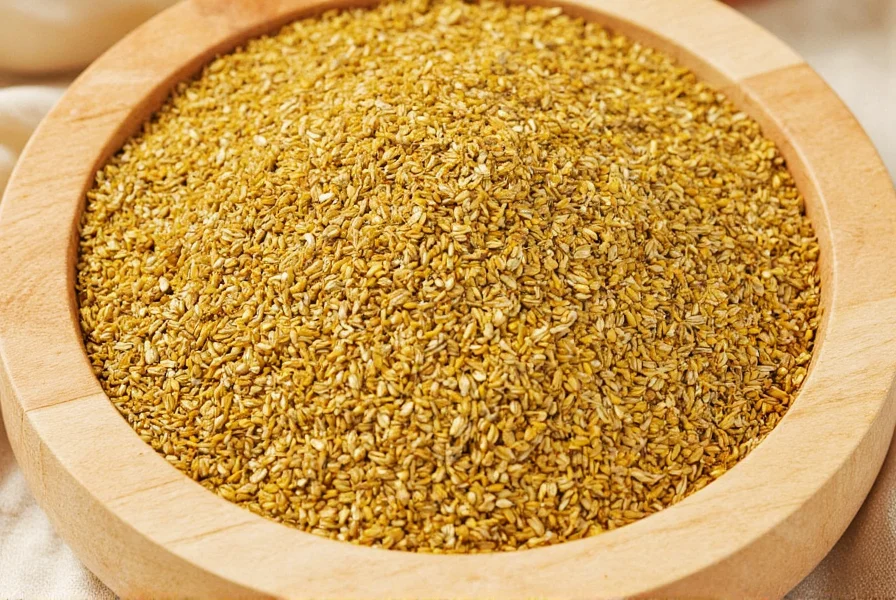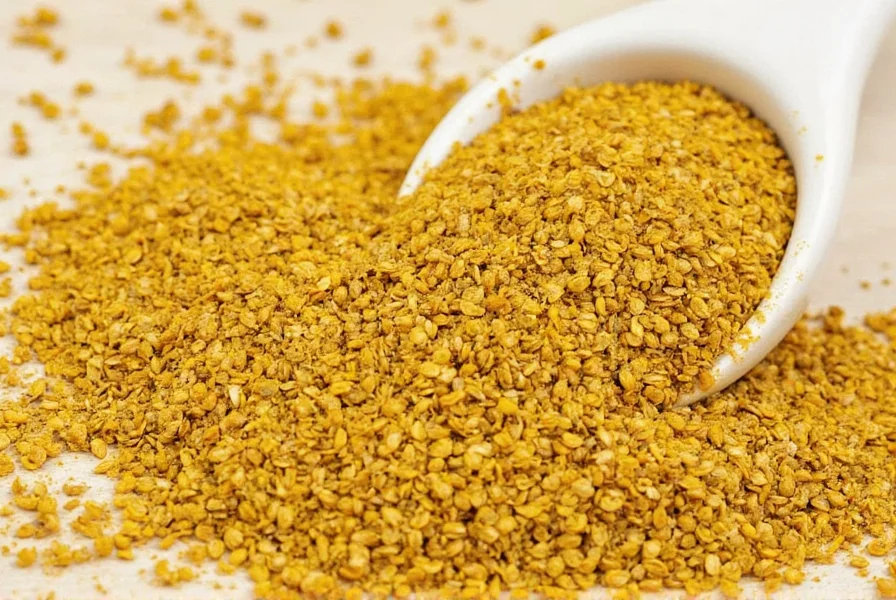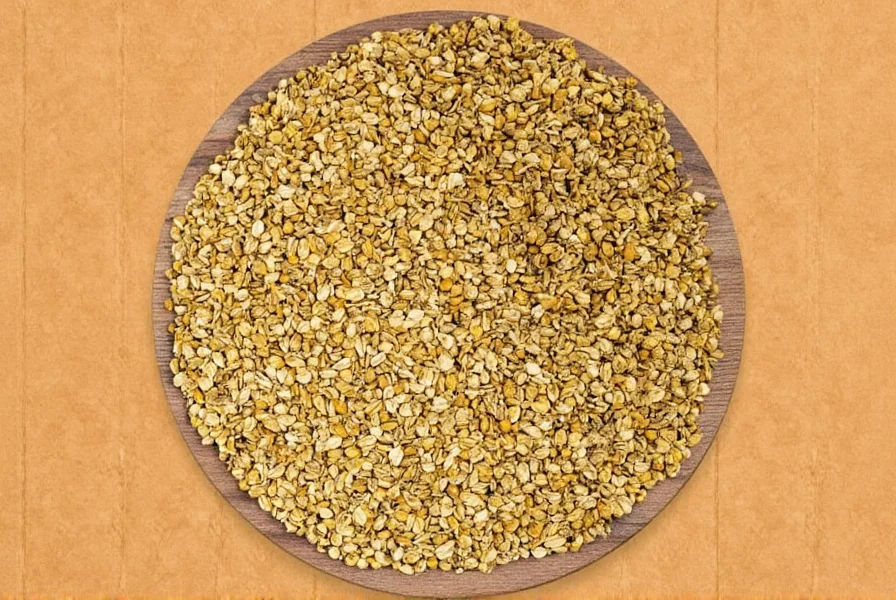Running out of mustard seeds mid-recipe can derail your cooking plans, but several pantry staples make excellent alternatives. Whether you're preparing Indian curry, pickling vegetables, or making homemade mustard, understanding the right substitute prevents wasted ingredients and ensures your dish turns out perfectly.
Why You Might Need Mustard Seed Substitutes
Mustard seeds come in three main varieties—yellow, brown, and black—each with distinct flavor profiles and culinary uses. Home cooks seek substitutes for several practical reasons:
- Unexpected recipe requirements when seeds aren't in stock
- Allergic reactions to mustard ingredients
- Dietary restrictions requiring seed-free alternatives
- Regional availability issues with specific seed varieties
- Desire for milder or stronger flavor profiles
Understanding the role mustard seeds play in your specific recipe determines the best replacement strategy. Seeds provide both flavor and texture, with yellow varieties offering mild tanginess, brown seeds delivering medium heat, and black seeds contributing intense pungency.
Top Mustard Seed Substitutes Ranked by Effectiveness
1. Mustard Powder (Best All-Purpose Substitute)
Mustard powder serves as the most direct replacement since it's simply ground mustard seeds. This substitute works across nearly all applications with minor adjustments:
- Ratio: 1 teaspoon powder = 1 tablespoon whole seeds
- Best for: Salad dressings, marinades, spice rubs
- Flavor note: Slightly more intense than whole seeds
- Texture adjustment: Add ½ teaspoon poppy or celery seeds for texture in pickling recipes
For substitute for mustard seeds in salad dressing, mix 1 teaspoon mustard powder with 1 tablespoon vinegar and 2 tablespoons oil. The emulsifying properties remain nearly identical to using whole seeds.
2. Prepared Yellow Mustard (Best Liquid Substitute)
When recipes call for seeds in wet preparations like brines or sauces:
- Ratio: 3 tablespoons prepared mustard = 1 tablespoon seeds
- Best for: Pickling liquids, barbecue sauces, sandwich spreads
- Adjustment tip: Reduce other liquids by 25% to compensate for added moisture
This works particularly well as a mustard seed replacement for Indian cooking in pre-made curry sauces, though traditional tempering techniques won't be replicated.
3. Turmeric with Vinegar (Best Color Match)
When visual appearance matters more than pungency:
- Ratio: ½ teaspoon turmeric + 1 teaspoon vinegar = 1 tablespoon yellow seeds
- Best for: Mustard-based sauces, potato salads, cheese spreads
- Flavor limitation: Lacks the characteristic mustard heat
This combination provides the familiar yellow color while mimicking some tanginess. Add a pinch of cayenne for dishes requiring heat.
4. Horseradish or Wasabi (Best for Pungency)
When replicating the sharp heat of brown or black mustard seeds:
- Ratio: 1 teaspoon prepared horseradish = 1 tablespoon seeds
- Best for: Sushi accompaniments, roast beef condiments, spicy aiolis
- Caution: Heat profile differs—more immediate but shorter-lasting burn
For those seeking a non-allergenic mustard seed substitute, horseradish provides similar sinus-clearing properties without mustard allergens.
5. Fenugreek with Turmeric (Best for Indian Cuisine)
Traditional Indian cooking often uses mustard seeds in tempering (tadka). This combination preserves authenticity:
- Ratio: ½ teaspoon fenugreek seeds + ¼ teaspoon turmeric = 1 tablespoon mustard seeds
- Technique: Toast fenugreek first until golden, then add turmeric
- Flavor profile: Earthy with subtle bitterness mimicking mustard's complexity
This works exceptionally well as a mustard seed replacement for Indian cooking in dals and vegetable stir-fries.
| Substitute | Best Applications | Flavor Match | Texture Match | Allergy Considerations |
|---|---|---|---|---|
| Mustard Powder | Dressings, rubs, marinades | ★★★★☆ | ★☆☆☆☆ | Contains mustard allergens |
| Prepared Mustard | Pickling, sauces, spreads | ★★★☆☆ | ★★☆☆☆ | Contains mustard allergens |
| Turmeric + Vinegar | Color-dependent dishes | ★☆☆☆☆ | ★★★☆☆ | Mustard-free option |
| Fenugreek + Turmeric | Indian cuisine | ★★★☆☆ | ★★★☆☆ | Mustard-free option |
| Horseradish | Condiments, spicy dishes | ★★☆☆☆ | ★☆☆☆☆ | Mustard-free option |
Special Considerations for Specific Applications
Pickling and Preserving
For best substitute for mustard seeds in pickling, celery seeds provide the closest texture match while contributing complementary flavor. Use equal parts celery seeds to replace mustard seeds, but reduce vinegar by 10% since celery seeds lack mustard's natural acidity.
When making refrigerator pickles, add ½ teaspoon mustard powder directly to the brine for authentic flavor without the seed texture.

Baking and Bread Making
In bread recipes calling for mustard seeds (common in German and Scandinavian rye breads), replace with equal parts poppy seeds plus ¼ teaspoon mustard powder per tablespoon of seeds. The poppy seeds provide visual similarity while the powder contributes flavor.
Dietary Restrictions
For those with mustard allergies, the safest non-allergenic mustard seed substitute combines:
- For yellow mustard seeds: ½ tsp turmeric + 1 tsp apple cider vinegar
- For brown/black seeds: 1 tsp horseradish + ¼ tsp cumin
Always verify with allergy specialists before serving to individuals with severe mustard allergies, as cross-contamination risks may exist with some substitutes.
Expert Tips for Successful Substitution
- Timing matters: Add powdered substitutes at the end of cooking to preserve flavor, unlike whole seeds which benefit from early tempering
- Hydration adjustment: When using dry substitutes in wet recipes, add 1-2 teaspoons of liquid per tablespoon of substitute
- Flavor balancing: Mustard contributes both acid and umami—compensate with vinegar and soy sauce if needed
- Texture replication: For recipes relying on seed pop (like tempering), add ¼ teaspoon sesame seeds to mimic the visual effect
Understanding the mustard powder instead of mustard seeds ratio prevents common mistakes. Remember that 1 teaspoon of powder equals the flavor of 1 tablespoon of whole seeds, but lacks the textural component that seeds provide when heated.

When Substitutes Won't Work
Some applications require authentic mustard seeds:
- Traditional Bengali shorshe ilish (mustard fish curry)
- Authentic German sauerkraut with whole mustard seeds
- Homemade stone-ground mustard
- Certain Ayurvedic medicinal preparations
In these cases, no substitute fully replicates the complex flavor development that occurs when whole seeds crackle in hot oil. For regular home cooking however, the alternatives presented work remarkably well.
Final Recommendations
Keep these guidelines in mind when selecting your substitute:
- For everyday cooking: Mustard powder provides the most versatile solution
- For Indian cuisine: Fenugreek-turmeric blend preserves authenticity
- For pickling: Celery seeds maintain texture without overpowering
- For allergies: Turmeric-vinegar combination offers safest alternative
Stocking mustard powder in your spice cabinet prevents last-minute substitutions. A small container costs little and lasts for years when stored properly, making it the most practical solution for frequent cooks.
Frequently Asked Questions
Can I use mustard powder instead of mustard seeds in pickling?
Yes, use 1 teaspoon mustard powder for every tablespoon of whole seeds. Add it directly to the pickling liquid rather than tempering. Reduce vinegar by 10% since the powder lacks the seeds' natural acidity. For better texture, include ½ teaspoon celery seeds per tablespoon of mustard powder.
What's the best mustard seed substitute for someone with a mustard allergy?
The safest non-allergenic substitute combines ½ teaspoon turmeric with 1 teaspoon apple cider vinegar to replace 1 tablespoon of yellow mustard seeds. For brown/black seed replacements, use 1 teaspoon horseradish with ¼ teaspoon cumin. Always verify with an allergy specialist before serving to those with severe mustard allergies.
How much prepared mustard equals one tablespoon of mustard seeds?
Use 3 tablespoons of prepared yellow mustard to replace 1 tablespoon of whole mustard seeds. Remember to reduce other liquids in your recipe by 25% to compensate for the added moisture from the prepared mustard. This works best in wet applications like sauces and marinades.
Can I substitute mustard seeds in Indian cooking without changing the dish significantly?
Yes, for Indian recipes use a combination of ½ teaspoon fenugreek seeds and ¼ teaspoon turmeric to replace 1 tablespoon of mustard seeds. Toast the fenugreek first until golden, then add turmeric. This preserves the earthy complexity while avoiding the distinct mustard flavor, making it an effective mustard seed replacement for Indian cooking.
Why does my substitute mustard seed recipe taste different even with proper ratios?
Whole mustard seeds release flavor gradually when heated, while substitutes like powder deliver immediate intensity. Try adding powdered substitutes later in cooking. Also, mustard seeds contribute both flavor and texture—add ½ teaspoon poppy or celery seeds to mimic the 'pop' of tempered mustard seeds. The oil used for tempering also affects flavor development.











 浙公网安备
33010002000092号
浙公网安备
33010002000092号 浙B2-20120091-4
浙B2-20120091-4